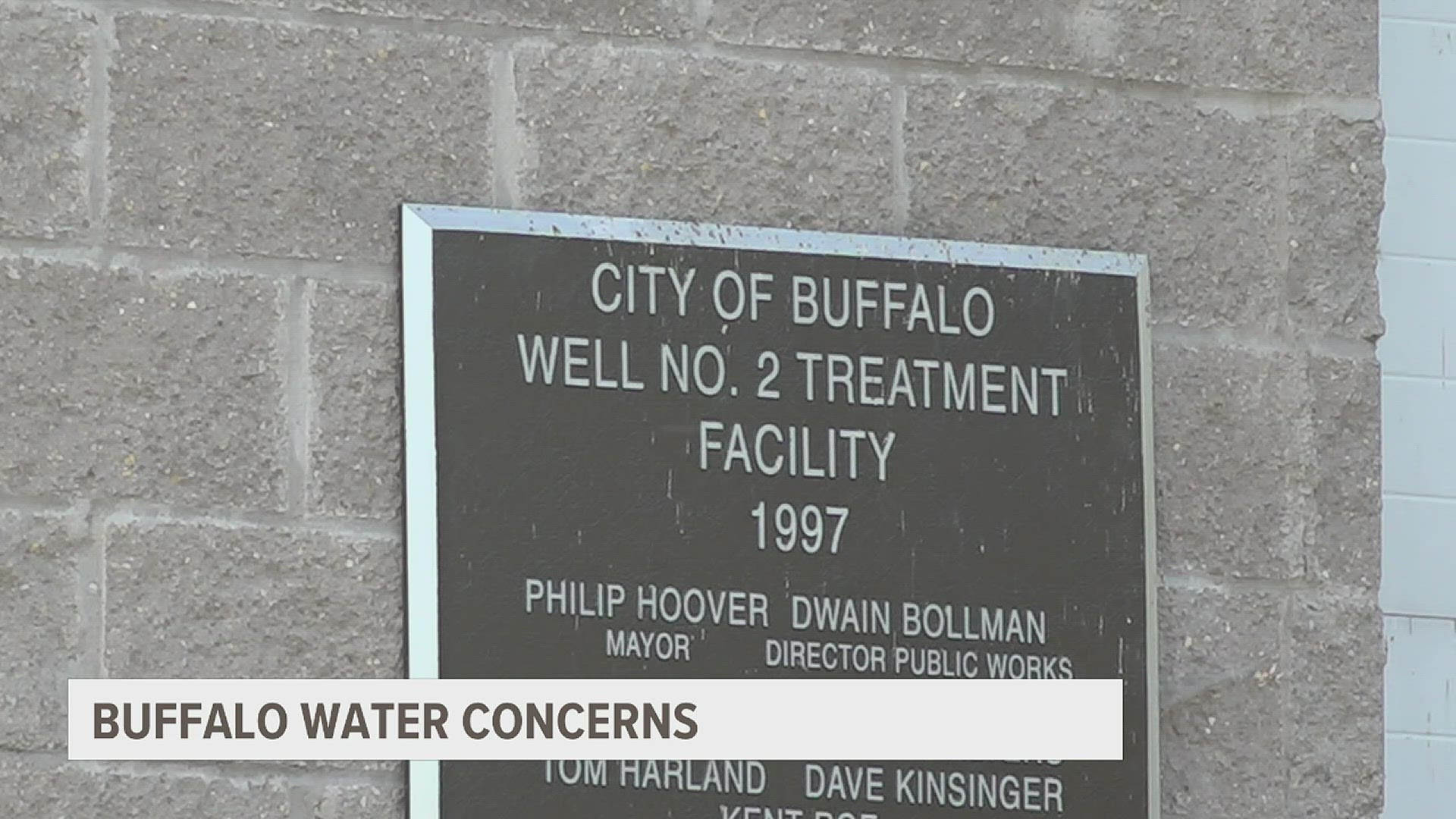BUFFALO, Iowa — Editor's Note: A previous version of this story said that PFAS levels above 4.0 PPT trigger a health advisory. 4.0 PPT is the legal limit for PFAS levels, per the Environmental Protection Agency's guidelines, and the story has been updated for clarity.
Residents in Buffalo, Iowa continue to voice their concerns after a test found the city's main water well had high levels of PFAS chemicals.
Janie Nesbitt is the owner of Janie's Riverview Cafe and started serving bottled water from a gas station nearby due to concerns over her water.
"I actually closed the cafe for a few days," Nesbitt said. "I thought it was a building problem because my water was coming out yellow, and so I called the landlord and he came and couldn't figure it out."
That's when Nesbitt switched to using bottled water in the drinks she served. She said she would continue to do so until more was known about the safety of the water supply.
"Just for the safety of our customers until they know the exact facts about if the water is safe or not," Nesbitt said. "It was frustrating."
Another resident, Wendy Lowe, expressed that she wasn't really sure what to do.
"A lot of people have said, 'Well, I'm going to drink bottled water,' and some people say 'Well, there's no regulations on the bottled water. So how do you know what's in that?'" Lowe said. "We're darned if we do and darned if we don't."
PFAS, also known as "forever chemicals," are manmade chemicals used for things like nonstick cooking items and have been linked to numerous health issues, including birth defects and even cancer.
"If consumers in Buffalo are drinking this water over the duration of their lifetime, that's when we start to worry about the potential health effects," David Cwiertny, a chemist at the University of Iowa, said.
He said that residents do have options if they're concerned about having safe drinking water, adding that carbon filters are a good route.
The city has been using a backup well since Aug. 24 after its primary well, Well #1, had to be shut off for repairs unrelated to the chemical concerns.
According to the city, Well #1 is tested regularly for contaminants such as bacteria, lead and harmful chemicals. Back in August, the city had conducted its third quarter test for PFAS, as required by the Iowa Department of Natural Resources. After getting the results back from a third-party laboratory, Well #1 was found to have high levels of the chemical.
The tests can not detect PFAS below 2.0 parts per trillion (PPT). The EPA's legal limit for PFAS is 4 PPT.
Well #1 test results show levels for two different types of PFAS, PFOA and PFOS.
Here are the results for Well #1 so far for 2023:
- First quarter, reported Mar. 14: PFOA 3.1 PPT, PFOS less than 2.0 PPT
- Second quarter, reported May 10: PFOA 2.8 PPT, PFOS less than 2.0 PPT
- Third quarter, reported Aug. 29: PFOA 8.1 PPT, PFOS 6.0 PPT
The city was able to determine that Well #1 is in need of repairs, including adding new grouting and installing an 8-inch metal casing. Buffalo's city engineer has begun the process to get these repairs approved by the Iowa DNR. According to officials, the city is still working with the state agency to receive this.
The city recently tested Well #2 and received those results on Oct. 12, which were sent to News 8. The results show that both PFOA and PFOS were below detectable levels but that PFBA levels were at 3.8 PPT.
According to the release, PFBA is one of many PFAS compounds and there is currently no federal regulation on the amount of PFBA that can be in drinking water. That said, Minnesota has a non-regulatory guidance level for PFBA of 7,000 PPT, which is significantly higher than the PFBA levels detected in Buffalo.
The city said it would continue testing Well #2 for PFAS every three months while it is being used.
Watch more news, weather and sports on News 8's YouTube channel

